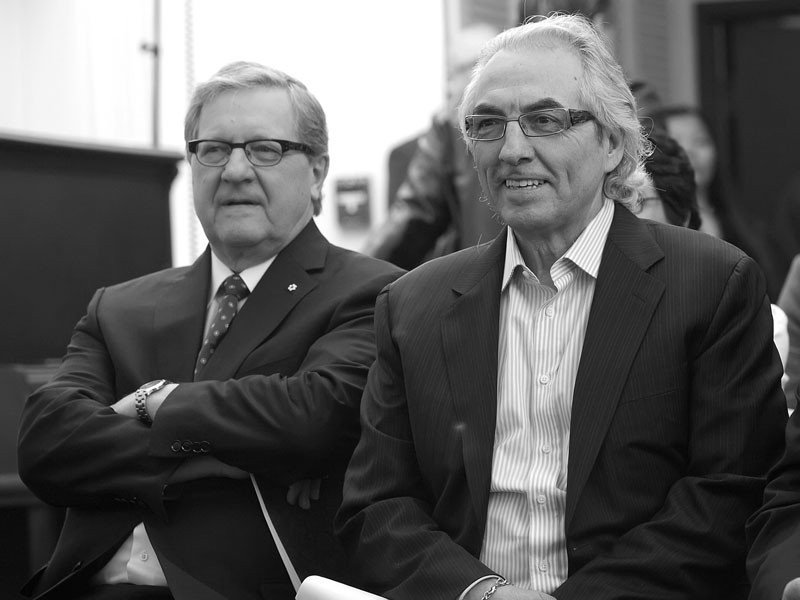U of W selected to become indigenous research hub
Funding awarded to create master’s degree in development practice
The University of Winnipeg is poised to become an international centre for indigenous development research.
The MacArthur Foundation announced an award of $800,000 to the University of Winnipeg Tuesday, May 4, to help develop a two-year master’s degree in development practice (MDP). If approved by the University Senate and the Council on Post-Secondary Education (COPSE), this program will give students hands-on experience in addressing issues from extreme poverty and human rights to climate change and natural resource management.
The U of W will be the only school in a global network of 21 leading universities to focus on how indigenous peoples can benefit from development while maintaining their identity.
“This program will make us a magnet for indigenous scholarship, research and teaching,” said Dr. Sandra Kirby, associate vice president of research and graduate studies. “How can a small university in central Canada change the world? The master’s in development practice is one of the ways in which such a thing is possible.”
Not only will the university attract research funding, but students will benefit from specialized research and best practices from other universities offering the MDP through the online global classroom network.
The U of W’s specialized master’s in development practice will further indigenous projects locally, nationally and internationally. Indigenous leaders will be engaged in the development of the program through an international advisory circle, chaired by Dr. Phil Fontaine, former national chief of the Assembly of First Nations.
“ How can a small university in central Canada change the world? The Master’s in Development Practice is one of the ways in which such a thing is possible.
Dr. Sandra Kirby, University of Winnipeg
“(The university) is consulting key stakeholders at a grassroots level including indigenous and northern communities,” Fontaine said in a news release.
The university has not only an institutional record of indigenous scholarship that includes teaching and research, but it also has well-established relationships with indigenous elders, faculty and practitioners. This, combined with the cross-disciplinary approach of the MDP, will help the university to develop long-term, community-based solutions that are culturally sensitive and integrate indigenous knowledge, values and development goals.
“We are particularly happy to be a partner in this program because of the high credibility of the University of Winnipeg, its academic staff and its president, Dr. Axworthy,” Grand Chief Ron Evans of the Assembly of Manitoba Chiefs said in a release.
Students will gain practical experience working alongside experts in two three-month field placements, the first international and the second domestic. Working across the core areas of health sciences, natural sciences, social sciences and management, students will gain the professional skills required to ensure global development projects take indigenous identity into account.
“Our grads will be able to co-ordinate across the development streams,” said Michael Benarroch, dean for the faculty of business and economics.
Should Senate and COPSE approve the MDP, 20 to 25 students could start as early as August 2011. Dr. Kirby notes that the program will be of particular interest to professionals from various backgrounds that already have some experience in the development field.
Columbia University’s Earth Institute, based in New York, manages the global MDP network. The master’s in development practice was created to address a shortage in skilled, cross-disciplinary development professionals noted by the International Commission on Education for Sustainable Development Practices in 2008.
Published in Volume 64, Number 26 of The Uniter (May 27, 2010)







